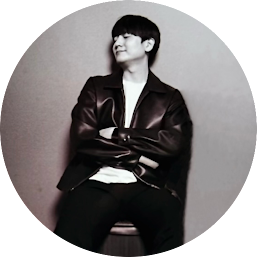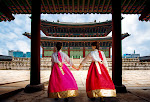
Discover the proud heritage and cutting-edge capabilities of the Republic of Korea Armed Forces, one of the world’s most advanced militaries, blending history, technology, and national duty.
South Korea’s Military: Heritage, Duty, and Global Strength
Introduction

The Republic of Korea Armed Forces (ROKAF) are more than a defense system — they are a symbol of Korea’s resilience, national pride, and commitment to peace. Ranked among the world’s most capable militaries, the ROK Armed Forces combine centuries of martial tradition with state-of-the-art technology. In this article, we’ll explore their historical roots, modernization, elite units, and international role.
Background & Cultural Context

Korea’s military traditions date back to the Three Kingdoms and Goguryeo era, where disciplined armies defended the peninsula. Through invasions, colonization, and the Korean War (1950–1953), military service became deeply embedded in national identity. Today, most South Korean men complete mandatory service (18–22 months), seen as both a duty and a rite of passage.
Key Highlights
⚙ Modernization & Technology
South Korea invests heavily in advanced defense technologies:
- 5th-generation fighter jets (KF-21 Boramae program)
- Ballistic missile and air-defense systems
- Next-gen submarines and naval fleets
- Thriving defense export industry (K2 Black Panther tanks, K9 howitzers)
🎖 Elite Special Forces
Units like the 707th Special Mission Battalion (nicknamed “White Tigers”) and the ROK Navy UDT/SEALs are among the most respected in Asia, trained for:
- Counter-terrorism & hostage rescue
- Amphibious infiltration & naval operations
- Reconnaissance and intelligence gathering
🌍 Global Peacekeeping & Alliances
Beyond defending the peninsula, the ROK military contributes to international stability:
- UN peacekeeping missions in South Sudan, Lebanon, and Haiti
- Medical and reconstruction efforts in Iraq and Afghanistan
- Joint defense exercises with the U.S., Japan, and Australia
👩 Women in Uniform
Women now make up nearly 10% of ROK forces, serving as officers, pilots, engineers, and even in combat units. Their growing role reflects Korea’s evolving commitment to diversity and inclusivity.
Practical Tips
- 📍 Visit the War Memorial of Korea in Seoul — immersive exhibits on history and modern defense.
- 🎬 Watch films like Taegukgi (2004) or Roar to Victory (2019) for dramatic portrayals of Korean soldiers.
- 📖 Read The Korean War: A History by Bruce Cumings for deeper insights into ROK military history.
FAQ
Q: How large is the ROK military?
A: Around 620,000 active personnel plus 3 million reservists, making it one of the world’s largest standing forces.
Q: What is the mandatory service requirement?
A: Korean men serve about 18–22 months depending on the branch. Women may enlist voluntarily.
Q: Does South Korea have nuclear weapons?
A: No. South Korea does not possess nuclear weapons but maintains advanced missile defense and relies on the U.S. nuclear umbrella.
Q: Can foreigners serve in the Korean military?
A: Rarely. However, the KATUSA program allows some Koreans with English fluency to serve alongside the U.S. Army in Korea.
Q: How does the ROK military contribute internationally?
A: Through UN missions, humanitarian operations, and close defense alliances with democratic partners.
Conclusion
South Korea’s military reflects a nation shaped by hardship, resilience, and ambition. From the ancient warriors of Goguryeo to today’s cyber defense units, the ROK Armed Forces embody discipline, technology, and global responsibility. For Koreans, it is not only a defense mechanism but also a symbol of pride and shared identity.
Want to dive deeper into Korea?
Visit our YouTube channel for more stories on Korean history and culture:
👉 www.youtube.com/@KORCULTURE




0 Comments